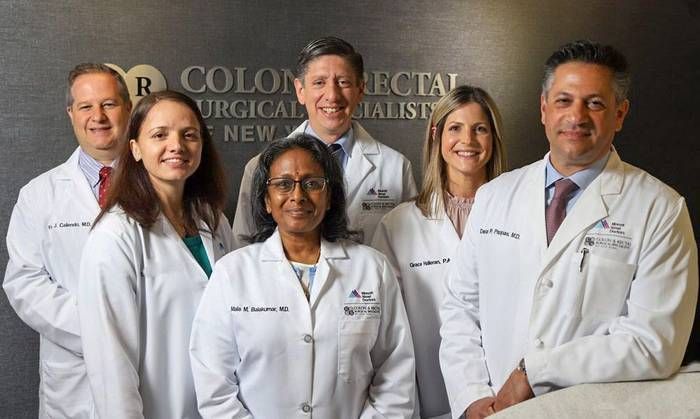
BY FRANK CALIENDO M.D.
Anal ulcers are breaks within the tissue lining the anus, which can cause pain and rectal bleeding, and increase the risk of infection.
When anal ulcers develop, it is important to seek treatment as soon as possible. This provides patients with relief and reduces the risk of further complications.
At Colon & Rectal Surgical Specialists of New York, our doctors offer a wide range of non-surgical and surgical anal ulcer treatment options to patients throughout New York. To learn more about your treatment options, we welcome you to schedule a consultation.
Anal Ulcers and Treatment
Anal ulcers are often a complication of Crohn’s Disease but may also develop as a result of conditions such as sexually transmitted diseases and chronic anal fissures, which are tears within the anal canal. Without treatment, anal ulcers can lead to rectal bleeding, infection, and pain, especially during bowel movements.
There are many treatments for anal ulcers, including surgical and non-surgical treatments. Generally, non-surgical treatments are used first.
The type of treatment used will depend on the severity of anal ulcers. However, if ulcers persist and don’t respond to non-surgical treatments, then surgical treatment may be recommended.
Treating Anal Ulcers with Lifestyle Changes
Anal ulcers are sometimes caused by constipation, hard stools, and straining while going to the bathroom. Even when anal ulcers have other causes, constipation, hard stools, and straining while going to the bathroom can all exacerbate ulcers and interfere with healing.
Making simple lifestyle changes can help prevent constipation and make it easier to go to the bathroom. Some simple changes that can help relieve pain, promote healing, and prevent anal ulcers from returning:
- Staying hydrated: Staying hydrated by drinking plenty of water can help prevent constipation.
- Eating plenty of fiber: Fiber helps keep stools soft, making it easier to pass stools while ulcers heal. Fiber may be added through foods, like fruits, vegetables, and nuts, or from a dietary supplement.
- Trying not to strain during bowel movements: Straining during bowel movements can cause a healing ulcer to open by placing pressure on the anus.
Non-surgical Treatment for Anal Ulcers
Topical treatments and medications are often effective at treating anal ulcers.
- Topical anesthetic creams: Topical anesthetic creams, such as lidocaine hydrochloride, can help ease pain while ulcers heal.
- Nitroglycerin: Nitroglycerin, most commonly Rectiv, may be externally applied to the anal tissue to increase blood flow within the tissue, helping to promote healing.
- BOTOX® injections: BOTOX may be injected to help relax the anal sphincter muscle and reduce spasms.
- Blood pressure medications: Blood pressure medications, like nifedipine and diltiazem, may help anal ulcers heal by helping to relax the anal sphincter.
Surgical Treatment for Anal Ulcers
When anal ulcers are chronic and do not heal from non-surgical treatment and lifestyle changes, or symptoms are severe, surgery may be the right course of action.
The surgical procedure that is usually performed for anal ulcers is called lateral internal sphincterotomy, or LIS. During the LIS procedure, a small area of the anal sphincter muscle is cut. This helps reduce pain, spasms, and encourages tissue healing.
Surgical treatment is one of the most effective treatments for chronic anal ulcers.
Discover Your Treatment Options
If you experience pain or bleeding during bowel movements, it’s important to seek a diagnosis and treatment. Without treatment, conditions may worsen and require more aggressive treatment. To learn more about your treatment options, please contact us to schedule a private consultation with one of our experienced doctors.


